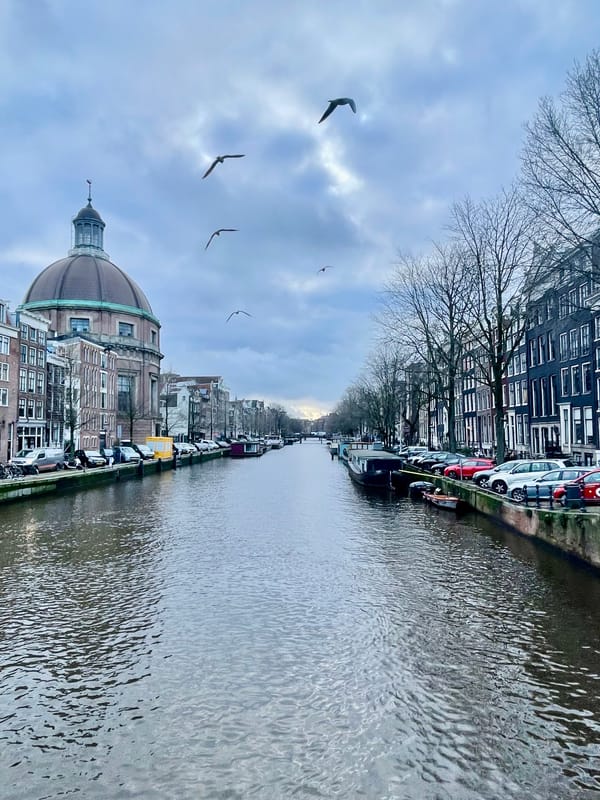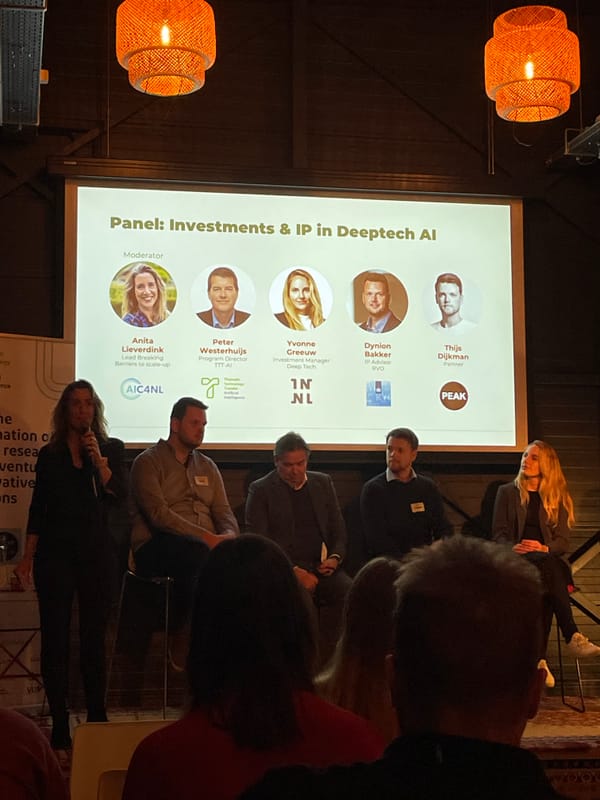Reflections on a Deep Tech AI Event
Attending the Deep Tech AI Event in Amsterdam was an inspiring experience. Here’s a reflection on the key takeaways and some of the exciting conversations that stood out during the event.
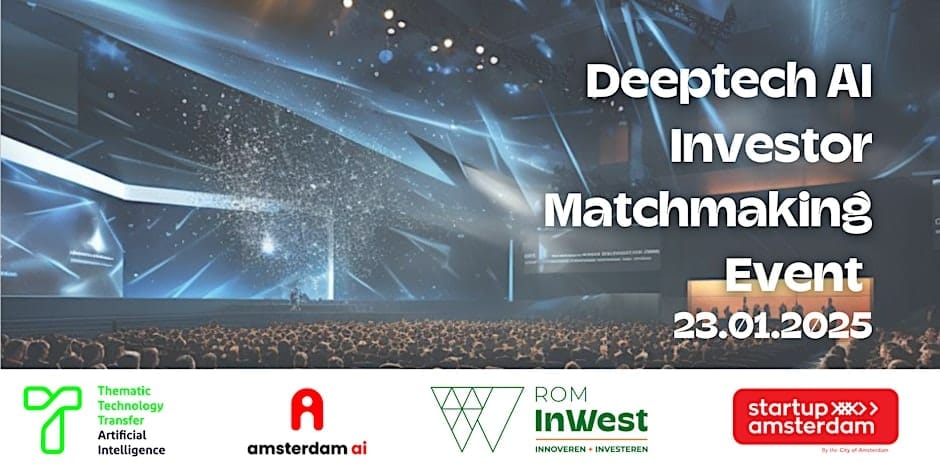
The Deep Tech AI Event brought together key organisations like "Thematic Technology Transfer Artificial Intelligence," "Amsterdam AI," "ROM InWest," and "Startup Amsterdam."
These groups highlight the collaborative nature of the event, which bridged academic knowledge, industrial innovation, and governmental support.
Key Learnings
As someone relatively new to the world of Deep Tech and AI, I’ve been diving into this rapidly evolving space with a combination of curiosity and excitement. With my background as a digital strategist, I’m looking to invest not just financially, but also with my time, knowledge, and energy.
The potential I see in AI is vast, particularly in the areas of Education, Health, and Defense, where its capabilities could bring about profound change. Attending this event was an eye-opening experience, providing invaluable insights into the latest advancements and how they’re shaping industries.
Below are the key learnings that stood out to me.
- Early-Stage and Scale-Up Support Matters: Regional development organisations play a pivotal role in helping startups grow by providing financial and infrastructural support.
- Balancing IP and Collaboration: The panel discussions made it clear that finding the right balance between protecting proprietary technology and fostering collaboration is critical for success in deep tech.
- Open Source as an Innovation Catalyst: Open source can act as a powerful enabler, but businesses need to understand (early) its obligations to leverage it effectively.
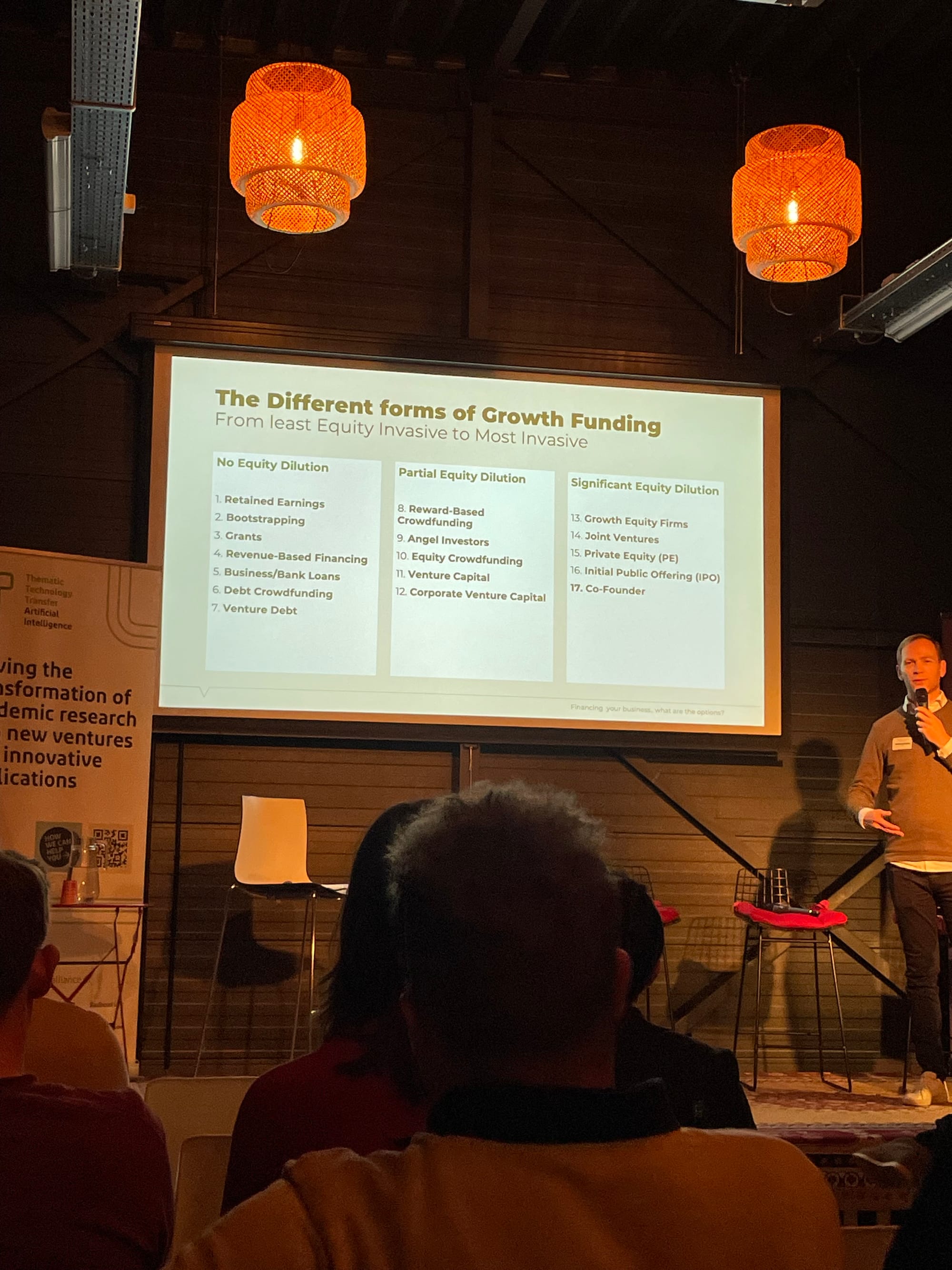
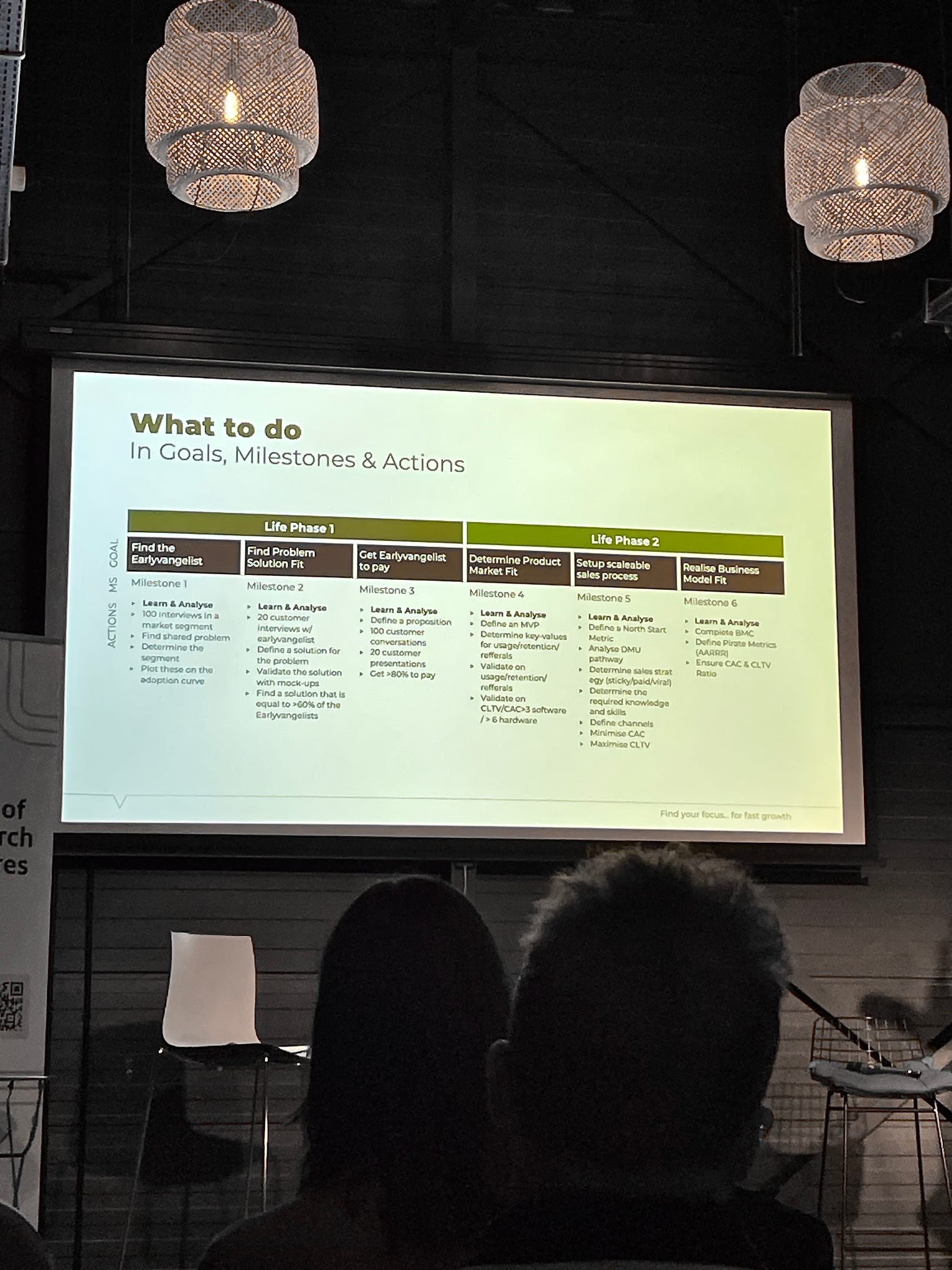
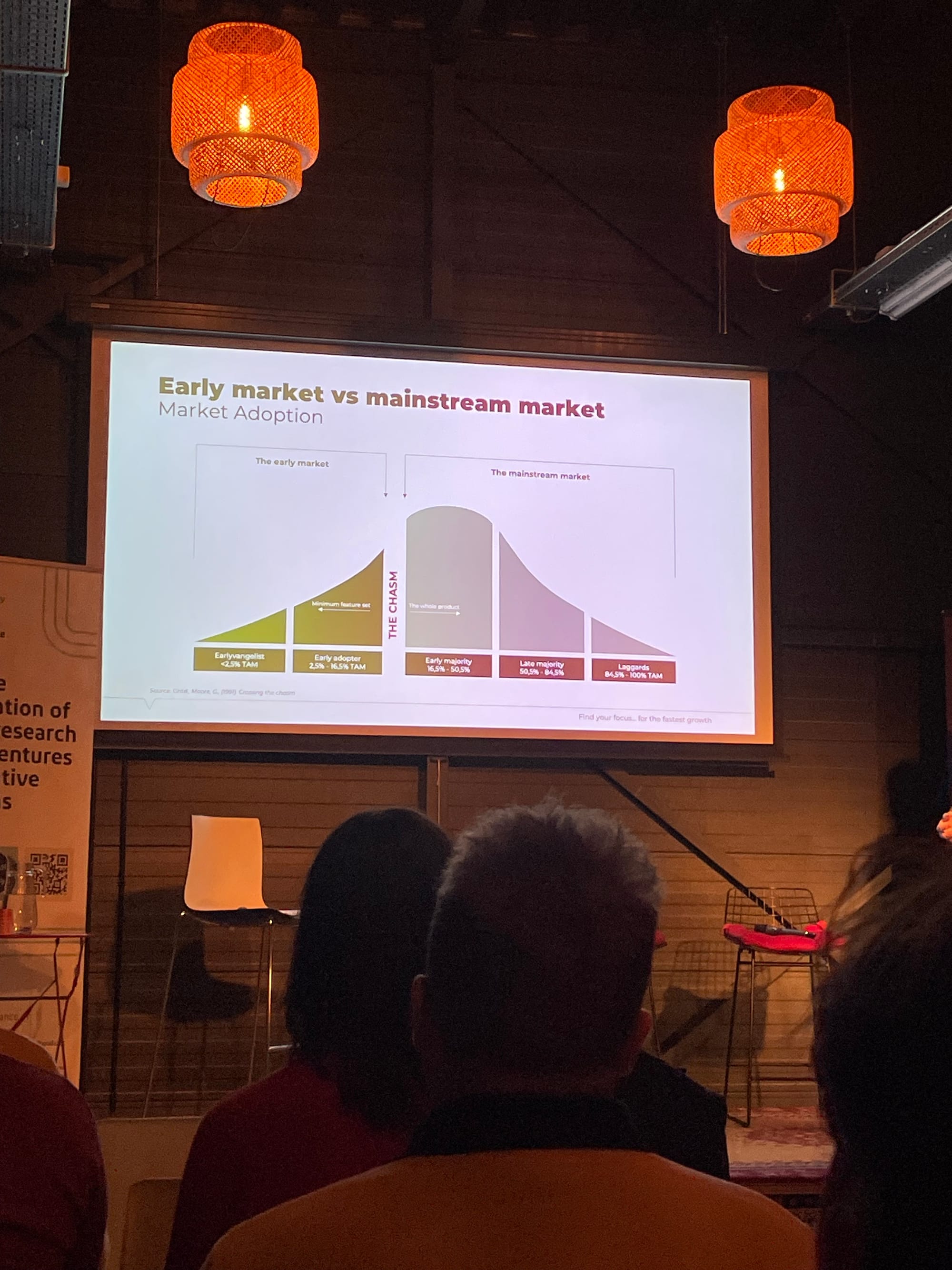
Jorn Eiting van Liempt from ROM inWest gave a great keynote about Funding rounds.
Inspiring Meetings
Two conversations with startups in an Italian table setup (a relaxed, small-group discussion format) stood out during the event:
- Readler.ai: This innovative startup is using advanced speech support algorithms to improve voice interaction systems. Their approach combines the flexibility of open-source tools with proprietary enhancements to deliver superior user experiences. Their vision aligned closely with my interests, and I’m excited to explore potential collaboration.
- Flux Robotics: Specialising in AI-driven magnetic navigation for surgery, Flux Robotics exemplifies how deep tech can tackle real-world challenges. By automating surgical tool positioning, they are setting new standards in healthcare precision and efficiency.
The event left me energised and inspired by the possibilities of deep tech AI. The mix of structured discussions and informal networking underscored the importance of collaboration in this rapidly evolving field.
Whether it’s through time, resources, or (in-kind) partnerships, events like these remind us that innovation thrives when we work together.

Deep Tech AI involves AI technologies that use advanced methods to solve complex problems, often relying on cutting-edge research, powerful computing, and interdisciplinary approaches. Examples include autonomous systems and AI-driven drug discovery.




